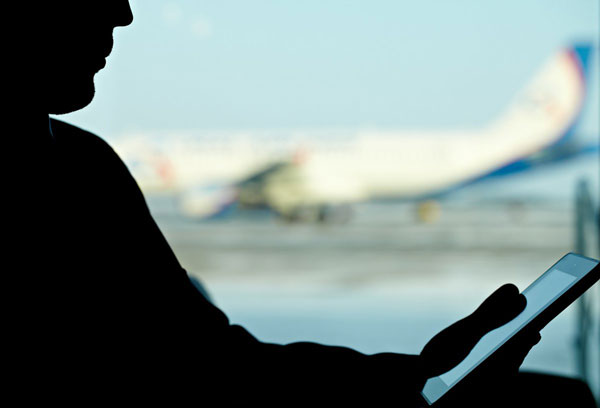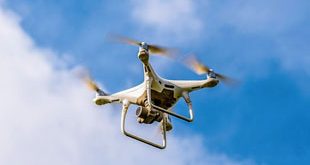
Montreal, Canada | AFP | British and US bans on laptops and tablet computers in flight cabins are not sustainable in the long term, the head of the association representing airlines said Tuesday.
“The current measures are not acceptable as a long-term solution to whatever threat they are trying to mitigate,” said Alexandre de Juniac, director general of the International Air Transport Association.
“Even in the short term, it is difficult to understand their effectiveness. And the commercial distortions they create are severe,” he said in a speech in Montreal.
“We call on governments to work with the industry to find a way to keep flying secure without separating passengers from their personal electronics.”
Last week, Washington banned electronic devices bigger than mobile phones on direct flights to the United States from 10 airports in seven Middle Eastern countries and Turkey.
Britain followed with a similar ban from five countries from the Middle East and North Africa, and Turkey.
US officials said the measure was intended to thwart possible attacks on airliners with small explosive devices hidden in consumer electronics.
In theory, it would be harder to hide a bomb in checked luggage because these are usually scanned with more sophisticated equipment.
De Juniac lamented a lack of advance consultation with the airline industry and “little coordination by governments” in the measure’s rollout.
He pointed to pushback from airlines and their passengers who are questioning the security measure, especially after other Western nations chose not to impose a ban.
“Why don’t the US and the UK have a common list of airports?” he asked. “How can laptops be secure in the cabin on some flights and not others (from the same airport)?
“And surely there must be a way to screen electronic equipment effectively at airport checkpoints,” de Juniac concluded.
All of the countries impacted by the ban are allies or partners of the United States: Turkey, Jordan, Egypt, Saudi Arabia, Kuwait, Qatar, the United Arab Emirates and Morocco.
The British ban targeted Turkey, Lebanon, Jordan, Egypt, Tunisia and Saudi Arabia.
Airlines and airports acted quickly to put the new restrictions in place, after they were announced.
But, de Juniac told a press conference, they would have appreciated “a bit more information” from the US and British governments.
The ban will have a “significant impact” on airline revenues, he said, as it would lead some passengers to bypass the airports in question in order to avoid any inconvenience.
Nine airlines in total are affected by the ban.
Laptops and other electronic equipment in large numbers may pose an additional risk because of their lithium-ion batteries, de Juniac noted.
In February 2016, the batteries were banned in checked bags on flights by the ICAO for safety reasons, at the request of airlines and pilot associations. That policy will be reviewed in 2018.
 The Independent Uganda: You get the Truth we Pay the Price
The Independent Uganda: You get the Truth we Pay the Price


